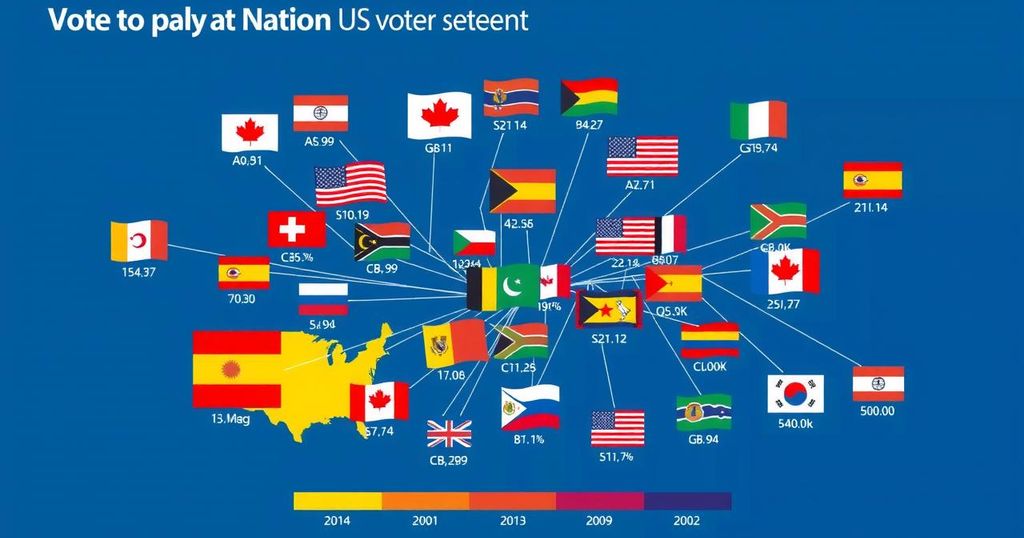Foreign Interference Intensifies Ahead of U.S. Elections, Microsoft Report Indicates
A Microsoft report reveals that Russia, Iran, and China are intensifying their efforts to influence the upcoming U.S. elections through disinformation campaigns targeting specific candidates and voter sentiment, with significant implications for electoral integrity and national security.
A recent threat intelligence report from Microsoft highlights the sustained efforts by foreign adversaries, particularly Russia, Iran, and China, to influence the upcoming U.S. elections. The report indicates a significant uptick in disinformation tactics as Election Day approaches. Russian operatives are reportedly focusing on creating deceptive videos to undermine Vice President Kamala Harris’ campaign. Concurrently, Chinese-associated social media efforts are targeting down-ballot candidates who have criticized China. Additionally, Iranian actors are re-examining election-related websites and media sources, raising concerns of potential voter intimidation schemes akin to those employed in 2020. U.S. intelligence officials express confidence in the security of election infrastructure, yet they acknowledge the worrying trend of foreign interference, especially in a close election. Despite some disinformation campaigns facing minimal interaction from American audiences, others have gained traction, inadvertently spreading misleading narratives domestically. In response to allegations of meddling, officials from Russia, China, and Iran have all dismissed such claims, asserting their intentions to not interfere in U.S. domestic affairs. This report sheds light on a broader strategy employed by these nations to exacerbate divisions among American voters, a tactic observed in prior elections. Clint Watts, of Microsoft’s Threat Analysis Center, underscored the historical capacity of foreign entities to rapidly disseminate misleading information, significantly impacting electoral opinions. With the election looming, vigilance against fraudulent online activity is paramount. Moreover, the report details specific instances of Russian operatives creating outlandish narratives, including fabricated claims of harm caused by Harris. Japan has cautioned that ongoing tensions, including the Israel-Hamas conflict, are being exploited to sway American perceptions. Ultimately, while foreign interference persists, U.S. officials maintain there is no current indication of threats aimed at election infrastructure. Security improvements have bolstered resistance against potential disruptions. However, the possibility of instigated civil unrest remains a concern post-election.
The issue of foreign interference in U.S. elections has become increasingly salient, especially in light of previous incidents during the 2016 and 2020 elections when foreign nations were found to have attempted to manipulate public sentiment and electoral outcomes. Russia, China, and Iran are identified as key actors in these attempts, often utilizing disinformation campaigns through social media and other platforms. The ramifications of these actions could undermine the democratic process and further polarize the electorate, making understanding these tactics critical as elections approach.
The Microsoft report underscores the persistent threat posed by foreign adversaries seeking to manipulate U.S. elections through disinformation. With an escalation in such activities as Election Day nears, the integrity of the electoral process is under scrutiny. U.S. officials remain confident in the security of the election infrastructure but caution against the potential for civil unrest stemming from foreign influence. Vigilance from voters, officials, and candidates alike is necessary to mitigate the impact of these intimidation and misinformation tactics.
Original Source: abcnews.go.com








Post Comment